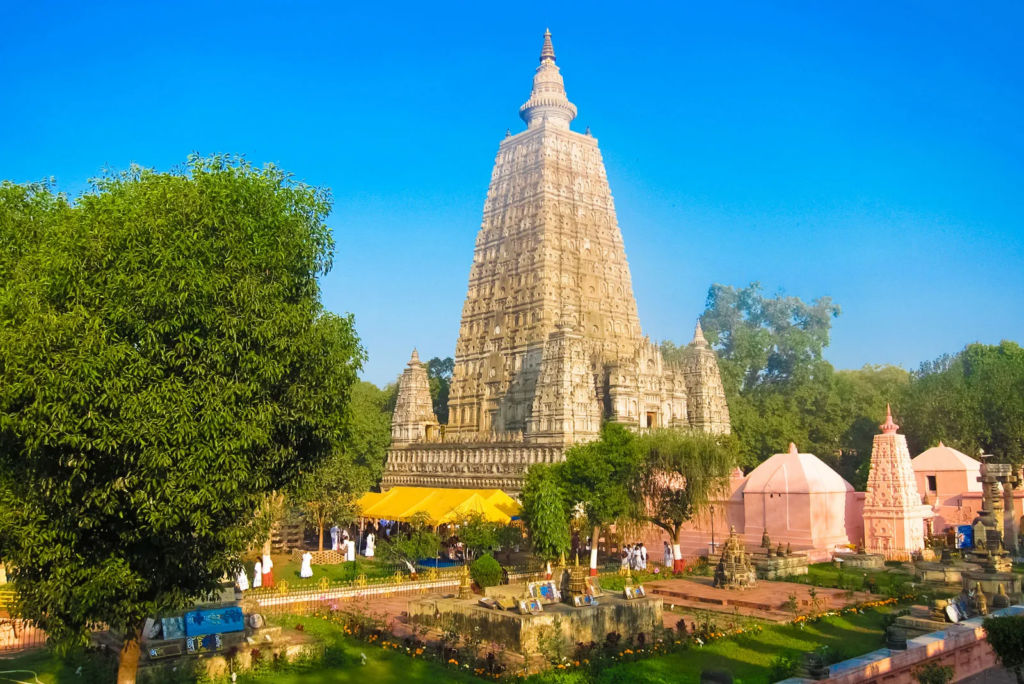A Site of Enlightenment Under Scrutiny
The Mahabodhi Temple in Bodh Gaya, India, stands as one of Buddhism’s most sacred sites—the hallowed ground where Siddhartha Gautama attained enlightenment over 2,500 years ago. Recognized as a UNESCO World Heritage Site, it draws millions of pilgrims and visitors annually. Yet, beneath its serene façade lies a simmering dispute: Who should control this spiritual epicenter? A growing movement, fueled by a Change.org petition, argues that the temple’s management should be entrusted to the global Buddhist community, reigniting a decades-old debate about religious autonomy and cultural heritage.
Historical Context: A Legacy of Disputed Governance
Since India’s independence, the Mahabodhi Temple has been governed under the Bodh Gaya Temple Act of 1949, which established a management committee with a controversial structure. Despite the site’s profound significance to Buddhists, the committee has historically included a Hindu-majority membership, a relic of colonial-era administrative practices. While Buddhists hold seats on the panel, their minority representation has long been a point of contention. Advocates argue that this arrangement undermines the temple’s spiritual essence and disregards the needs of the Buddhist community, which views the site as the symbolic heart of their faith.
Why Buddhists Are Demanding Change

The petition’s supporters emphasize several key grievances:
- Cultural and Spiritual Sovereignty: For Buddhists, the temple is not merely a historical monument but a living place of worship. Many feel that its current management fails to prioritize rituals, preservation, and the voices of Buddhist practitioners.
- Neglect and Commercialization: Critics allege that the site’s spiritual integrity has been compromised by commercialization, with concerns about inadequate maintenance and inappropriate tourist activities.
- Global Precedent: Other major religious sites, such as the Vatican or Mecca, are managed by their respective faith communities. Advocates ask: Why should Buddhism’s holiest site be an exception?
The movement also highlights the irony of a Hindu-majority committee overseeing a Buddhist pilgrimage site in a nation that prides itself on religious diversity. As one petitioner noted, “The Mahabodhi Temple is to Buddhists what the Ganges is to Hindus. Its stewardship must reflect its sacred purpose.”
The Petition’s Call to Action
The Change.org campaign urges the Indian government to amend the Bodh Gaya Temple Act, ensuring Buddhist-majority control over the temple’s governance. It calls for solidarity from global citizens, interfaith allies, and policymakers to rectify what many see as a historical injustice. The petition also seeks to amplify the voices of Buddhist monks, scholars, and lay practitioners who argue that self-determination is essential to preserving the temple’s sanctity.
A Broader Conversation About Heritage and Identity
This struggle transcends Bodh Gaya. It taps into global debates about who has the right to manage sacred spaces—particularly those with universal cultural significance. UNESCO’s designation of the Mahabodhi Temple as a World Heritage Site underscores its value to humanity, yet the petition underscores that its spiritual heartbeat belongs to Buddhism.
How You Can Support
- Sign the Petition: Add your voice to thousands advocating for Buddhist stewardship.
- Spread Awareness: Share the campaign on social media using hashtags like #MahabodhiForBuddhists or #SacredStewardship.
- Engage in Dialogue: Educate others about the temple’s history and why this issue matters.
Conclusion: A Chance for Justice and Unity
The Mahabodhi Temple is more than bricks and mortar—it is a beacon of peace, wisdom, and awakening. Returning its governance to Buddhists would honor its legacy while setting a precedent for respecting religious autonomy worldwide. As the petition gains momentum, it invites us all to reflect on how we protect sacred spaces and the communities they serve.
Join the movement. Sign the petition. Stand in solidarity.
Ready to support?
help reclaim the Mahabodhi Temple for the Buddhist community.
Let’s ensure this sacred site remains a true sanctuary of enlightenment—for generations to come.

